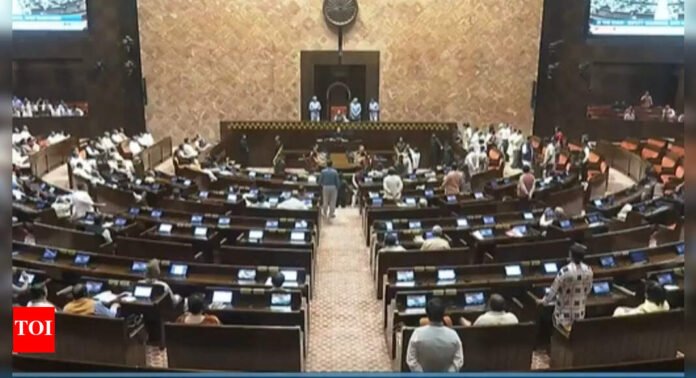NEW DELHI: Rajya Sabha on Tuesday passed a Statutory Resolution to extend President’s Rule in Manipur for another six months. The move comes amid the ongoing unrest and fragile law and order situation in the northeastern state.The resolution states the “continuance in force of the Proclamation dated the 13th Feb ’25 in respect of Manipur, issued under article 356 of the Constitution by the President, for a further period of six months with effect from 13th August, 2025.”The resolution was moved by union minister of state for home affairs Nityanand Rai, even as opposition MPs raised slogans in protest during the proceedings.Earlier on July 30, the Lok Sabha had previously approved the resolution to extend the President’s rule in Manipur, reported ANI.The Centre had imposed President’s Rule in Manipur on February 13, following N Biren Singh’s resignation from his position as chief minister.Singh stepped down due to ongoing violence and political uncertainty that affected the state for approximately two years.Under Article 356 of the Constitution, this administrative change means the president will now oversee the state’s governance through the Governor.According to the proclamation published in the Gazette of India by the union home ministry, Parliament will assume the powers of the Manipur Legislative Assembly, effectively suspending the state government’s authority.This directive transfers the Governor’s powers to the President, shifts state legislative authority to Parliament, and suspends specific constitutional articles regarding legislative procedures and governance to facilitate central administration.President’s rule is implemented when state governments cannot function according to constitutional requirements. This decision follows governance issues and security concerns in Manipur. During this period, all state legislation and decisions will be made under central authority.The ongoing unrest in Manipur stems from violent clashes between the majority Meitei community and the minority Kuki-Zomi tribes. The conflict, driven by disputes over economic benefits, job reservations, and land rights, has led to hundreds of deaths and the displacement of nearly 60,000 people.









